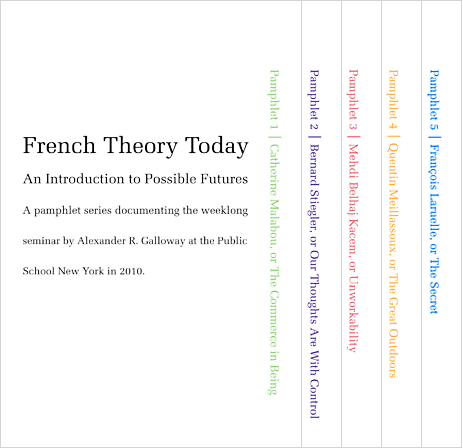Michael Hardt, Antonio Negri: Declaration (2012) [English/Russian]
Filed under pamphlet | Tags: · commons, neoliberalism, occupy movement, protest, resistance, social movements

This is not a manifesto. Manifestos provide a glimpse of a world to come and also call into being the subject, who although now only a spector must materialize to become the agent of change. Manifestos work like the ancient prophets, who by the power of their vision create their own people. Today’s social movements have reversed the order, making manifestos and prophets obsolete. Agents of change have already descended into the streets and occupied city squares, not only threatening and toppling rulers but also conjuring visions of a new world. More important, perhaps, the multitudes, through their logics and practices, their slogans and desires, have declared a new set of priciples and truths. How can their declaration become the basis for constituting a new and sustainable society? How can those priciples and truths guide us in reinventing how we relate to each other and our world? In their rebellion, the multitudes must discover the passage from declaration to constitution.
Self-published on 8 May 2012
ISBN: 9780786752911
98 pages
commentary (by Nicholas Mirzoeff)
PDF (PDF; updated on 2013-2-5)
View online, cont. (Russian translation in progress, added on 2013-2-5)
Alexander Galloway: French Theory Today: An Introduction to Possible Futures (2011)
Filed under pamphlet | Tags: · non-philosophy, philosophy, theory

“This set of five pamphlets documents a seminar given recently by Alexander R. Galloway at the Public School New York, a self-organizing educational program where class ideas are generated by the public. French Theory Today explores a new generation of French voices—Catherine Malabou, Bernard Stiegler, Mehdi Belhaj Kacem, Quentin Meillassoux, and François Laruelle—whose work has, to varying degrees, only recently emerged in the English-speaking world. Each night of the seminar consisted of a lecture followed by questions from and discussion with class participants. As Galloway suggests in the online class proposal, the goal was ‘not to set in aspic a new canon for French philosophy, but to proceed inductively, tracing some recent experiments and possible futures.'”
Pamphlet 1 | Catherine Malabou, or The Commerce in Being
Pamphlet 2 | Bernard Stiegler, or Our Thoughts are With Control
Pamphlet 3 | Mehdi Belhaj Kacem, or Unworkability
Pamphlet 4 | Quentin Meillassoux, or The Great Outdoors
Pamphlet 5 | François Laruelle, or The Secret
Each pamphlet includes the texts of the lectures, plus transcriptions of the Q&A, as well as special responses and contributions from Nicola Masciandaro, Eugene Thacker, Dominic Pettman, Jackson Moore, Stephen Squibb, Prudence Whittlesey, Taeyoon Choi, and David Horvitz.
Publisher The Public School New York/Erudio Editions, 2011
PDF, PDF (updated on 2021-12-16)
Comment (0)Kazimir Malevich: Bog ne skinut. Iskusstvo, tserkov’, fabrika (1922) [Russian]
Filed under pamphlet | Tags: · art, avant-garde

“Through transforming the world I move towards my own transformation and, perhaps, in the last day of my conversion I will transform into a new form leaving my current image in the fading green animal kingdom… And the most economical is a square..”
God Is Not Cast Down: Art, Church, Factory [Бог не скинут: искусство, церковь, фабрика], a pamphlet written in 1920 during Malevich’s days as director of the Vitebsk Academy. The artist attempts to summarize his philosophy of art. For Malevich, this is an exercise just as important, or even more important, than painting. The resulting collection of theses provides for difficult but thought-provoking reading. Published in 2000 copies.
Publisher Unovis, Vitebsk, 1922
43 pages
Malevich on Monoskop wiki
google books
PDF (updated on 2012-11-19)
Comment (0)
